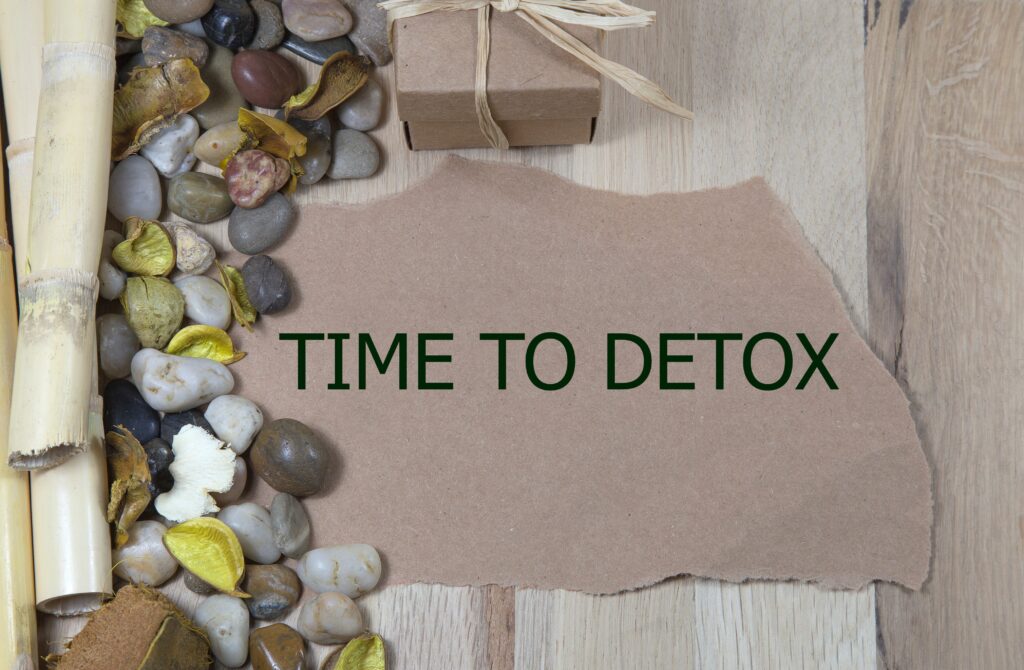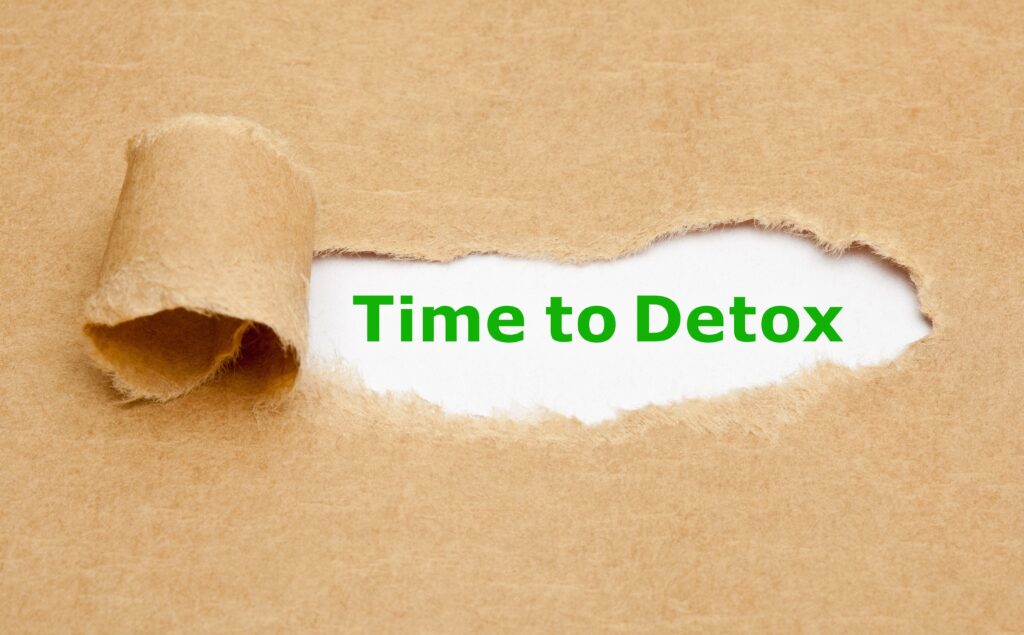Welcome to Detox 101! Once a person becomes addicted to a substance, it can be a hard habit to break. Substance abuse is one of the most difficult things in life to fight against. When someone becomes addicted drugs or alcohol, they start to prioritize it over anything else. Friends, family, work, health, etc. often get set on the back burner while drugs/alcohol are put at the forefront. Anything that interferes with their addictive habits will get pushed aside. Detoxification is step one in the journey towards a long-lasting sober life.
Sometimes, however, addicts are able to realize how their actions are affecting other areas in their life. This is the first step in the recovery process! Once an addict realizes how destructive their habits are, they can start to ask for help. This does not mean this process is without its own hardships. Admitting you need help is never an easy thing to do, but it is necessary if an addict is looking to recover. This is but a small hurdle in the overall detoxing process.
After admittance, the next step in recovery is dealing with withdrawal. Easily the hardest thing for a former addict to deal with, withdrawal is the body’s way of fighting to get the feeling of numbness back. It can cause some severe symptoms and they can be physically and emotionally exhausting for a person to deal with. Sadly, many former addicts will give into withdrawal and fall right back into addiction. In order to avoid this, medical detox therapy is usually advised for those seeking sobriety. Detox is easily one of the most important parts of the drug and alcohol treatment process. The purpose of detox is to cleanse the body of toxins, help find ways to cope with emotional/physical distraughtness, and absolve mind of any chemical dependency. In this post about Detox 101, we’ll be going over everything you need to know about drug detox.
Detoxification 101
Detoxification can be defined as a process or period of time in which one abstains from or rids the body of toxic or unhealthy substances. This process is quite simple, but it does get tough. During the beginning, a person will be asked questions regarding their substance abuse. Which substance did you use? How much? How serious is this addition? Was this a daily habit? Questions like these aren’t easy to answer, but they’re necessary for detox. This way, the treatment professionals can find out how to best help you during this tough process, as detox can vary from person to person. The answers can be found in this blog about Detox 101, but should be found with medical professionals.
Withdrawal 101
Withdrawal is probably the hardest part of the detox process. Withdrawal symptoms depend mostly on the type of addiction a person is suffering from. However, it can also depend on the person’s health and other factors like that. It is by no means an easy process, it’s possibly the most difficult part of detoxing. During withdrawal, a person is pretty much guaranteed some form of discomfort that ranges from mild to severe. Before going into this process, you have to mentally prepare yourself with one thing in mind: withdrawal does not last forever, but it will be painful. Phoenix Drug Rehab has valuable information to check out. Though the pain from withdrawal sounds scary, you’ll thank yourself later for going through with it. The most common addictions that are treated for detox are heroin, alcohol, prescription drugs, and cocaine. Each of these addictions come with their own set of withdrawal symptoms, so we’re going to list them out for you.
Substances to Detox From
Alcohol
With alcohol withdrawal, you can expect a couple of things. Depression, headaches, dehydration, anxiety, shakiness, and even irritation are some of the most common symptoms of alcohol withdrawal. They can even have trouble sleeping and have trouble focusing on things.
Prescription Drugs
Prescription drugs are among some of the most highly addictive substances out there. Because they are so potent, the withdrawal symptoms that come along with it can be much more severe when compared to other addiction withdrawal symptoms. Headaches, anxiety attacks, hypertension, sickness (flu), and sleep depravity are all quite common for those detoxing from prescription drugs.
Since these medications are so potent, medical detox professionals recommend a more hands-on detox treatment. Never self-detox from this type of addiction – this is Detox 101’s number 1 recommendation.
Cocaine
Cocaine withdrawal symptoms are similar other addiction withdrawal symptoms, but with some other more severe ones. People going through cocaine detox can expect symptoms such as nightmares, suicidal thoughts, paranoia, anxiety, fatigue, increased appetite, and restlessness.The crash that comes after cocaine use is a hard one. Symptoms like these start to set in just a few days after use, but they can last for months. When the feelings depression and anxiety start to set in, users may resort to relapsing rather than coping with the symptoms.
Heroin
Heroin is an opiate, which means it’s withdrawal symptoms are more severe than most. Body pain, nausea, cold flashes, upset stomach, short breathes, anxiety, hypertension, and muscle spasms are all symptoms you can expect during heroin detox. Heroin is an extremely difficult drug to stop using which means withdrawal symptoms will only get worse during detox the longer a person uses the substance.
Medical Treatment
Addiction treatment has many steps, but detox is always the first step into the journey of recovery. Most detox treatments have medical supervision to help keep patients accountable and comfortable during this tough process. Detox from substances can be extremely difficult to do on your own, medically supervised detox treatments are highly recommended. Not only does this help with accountability, but medical supervision also allows professionals to keep their eyes on your health and make proper assessments for your health/well-being.
Detox 101 emphasizes the need for medical treatment. You may think you’ll be able to get past the most severe parts of detox on your own, but it is not that simple. Even if you are able to beat the difficulties of withdrawal on your own, it’s important to have medical professionals monitor you for a while after the most severe symptoms pass to ensure you do not fall victim to relapse. Medical professionals can also help give prescribed medications to help cope with any sort of negative mental impacts you may have received from your past substance abuse. Problems such as depression and anxiety are issues that may not go away as quickly as physical withdrawal symptoms.
Getting Help With Detox 101
Besides detox itself, admitting you need help is one of the hardest things for an addict to do. You are essentially admitting defeat, but there is nothing wrong or shameful about that. This is a battle you can win, you just need to be properly equipped. The detox process can help you beat substance abuse. Cutting the bad habit out by yourself isn’t the best way to handle addiction recovery. It’s best to find a treatment option that equally encourages you to find ways to cope and helps keep you accountable throughout the process. This Detox 101 is just an intro into what we do at Scottsdale Integrated Detox. We employ very effective and comprehensive methods within the overall scope of medical detoxification. Our ultimate goal isn’t simply to wean the patient off whatever substances he or she is addicted to, but rather to catapult them into a highly effective experience within the overall addiction treatment process, one that is poised to create a realistic pathway into long-term, quality sobriety.
If you or someone you know needs help with addiction or is ready for detox, contact 1-602-346-9143 or email [email protected] to get the help you need.












